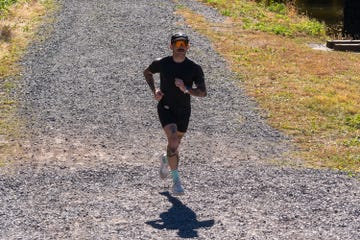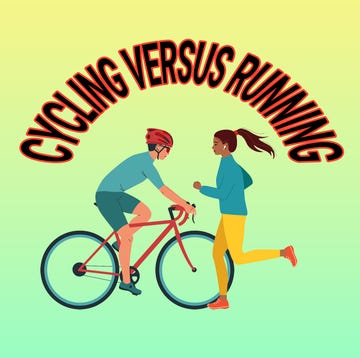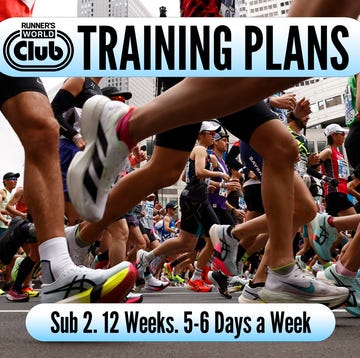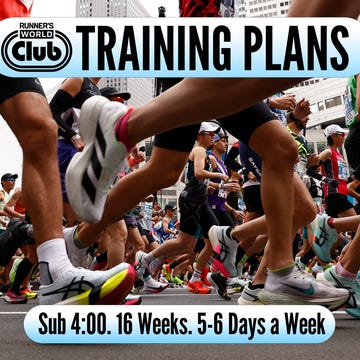Success in running is relative – and that’s the beauty of it. The time that it takes one runner to complete a 5K easy run can be another runner’s 5K PB, while someone’s first-ever parkrun can be as much of an achievement as someone’s first-ever ultramarathon. Running challenges different people in various ways, but it welcomes and accommodates everyone.
Even so, whether you’ve been running for decades or are yet to clock your first running steps, how do you know if you’re on pace with the rest of the running community? It’s common to want to know the average finish times for popular race distances like the 10K and marathon, but how long does it take the average runner to clock a single kilometre? The metric building block of running, the kilometre is an unusual race distance, but a common marker in everyday training.
So, how does your 1km time compare with the average? We’ve explored the findings and shared some tips on how to improve your own kilometre time.
What everyone's reading
How far is 1km?
To be clear rather than patronising, a kilometre measures 1,000m. A kilometre is shorter than a mile, which is another common measurement in running and which comes in at a slightly jarring 1.609km (approximately). By that logic, a neat 5K run measures around 3.1 miles, a 10K run about 6.2 miles and so on.
Although you can often watch and enter mile races on the road and track, 1km races are a lot harder to come by. That said, you do occasionally see 1km track races, which involve two and a half laps of a standard 400m track and are known, in this context, as 1000m races.
What is the average 1km finish time?
According to Strava’s latest Year in Sport report, the average pace of runners across the world is 6:22 min/km (10:15 min/mile), which means that the average runner covers a kilometre in six minutes and 22 seconds. To arrive at this figure, Strava scrutinised data from billions of activities uploaded to the app by its global community within a 12-month period, as well as insights from a randomised global survey of 5,068 active people (including users and non-users of Strava).
Garmin, the brand behind some of runners’ favourite wearables, has also pulled some recent statistics on our running habits, including our average kilometre pace. Looking at the data of runners – that is in this context, people who are Garmin users who have completed two or more runs per week for 75% of the year – worldwide, Garmin found the average global running pace to be 5:39 min/km (9:06 min/mile). In the UK alone, though, we move a little quicker and run at an average pace of 5:50 min/km (8:58 min/mile), which means that our mean kilometre time is five minutes and 50 seconds.
What impacts your 1km running pace?
Although the averages detailed above are helpful, they don’t account for factors that may affect your running speed.
For starters, the terrain upon which you’re running will sway your pace. Almost invariably, it will take you longer to complete technical kilometres on rugged trails than it will to cover the same distance on a smooth, flat road, running track or treadmill. Weather conditions will also impact your pace, with hot and humid conditions putting more stress on the body and making familiar running paces feel more difficult than usual. When running in tougher trail environments or in warmer conditions, for example, it is advisable to train by rate of perceived exertion (RPE) instead of pace and, as such, focus on your effort rather than the numbers on your running watch.
What’s more, the total distance that you’re running will likely affect your running pace. For instance, your average pace for a marathon – which is approximately 42.2km – will almost certainly be slower than your pace for a 1km race, where you do not have to pace yourself for the long haul and can afford to work at a higher intensity. Even within a single interval session, where, say, you complete a set of 1km intervals with short recoveries, sandwiched between warm-up and cooldown blocks of easy running, your pace will vary. In other words, your 1km repeats will (or at least should) be noticeably faster than the easy warm-up and cooldown kilometres around it.
With that in mind, it is beneficial to establish different pace zones for the various types of runs on your training plan – from recovery runs to threshold runs – so that you can work at an appropriate intensity for each session. This is especially helpful if you have a goal race on the horizon and a dream PB in mind – so use our training pace calculator to get started.
What are the 1km world records?
As mentioned, racing a single kilometre is very unusual in the running world, so there are no ‘official’, World Athletics-verified 1km world records. However, there are official world records for the 1000m, which is essentially a 1km race on the track.
Noah Ngeny of Kenya holds the men’s 1000m world record, having powered through the distance in a time of 2:11.96 in Italy in September 1999. The UK’s Sebastian Coe places second on the list thanks to his performance of 2:12.18 in Norway in July 1981, while fellow Brit Steve Cram places third with his 1000m PB of 2:12.88, which he ran on home soil in August 1985.
The current women’s 1000m world record, which is almost 20 years old, is held by Svetlana Masterkova of Russia, who clocked 2:28.98 for the distance in Belgium in August 1996. Kenya’s Faith Kipyegon, who is the world record holder in the mile and 1500m, is the next-fastest by a fraction of a second, having run 1000m in 2:29.15 in Monaco in August 2020. Judging by her recent feats, Kipyegon could well take the kilometre crown if she runs another 1000m race soon.
How can you improve your 1km time?
To improve your kilometre time, or indeed get faster over any running distance, it’s important to build speedwork into your weekly running routine. Although it may sound scary and prescriptive, speedwork encompasses several different types of runs – including fartleks, tempos and intervals, which are explained in more detail here – and helps to improve your fitness, endurance and running economy while adding variety to your training. The aim of speedwork is to push your body to the point where it no longer feels comfortable, in a controlled way, so that your body can adapt to the training stimulus and faster running speeds.
You should also balance your speedwork with plenty of lower-intensity aerobic exercise – like easy runs and activities like cycling – and pepper in regular strength and conditioning sessions to increase your power and resistance to injury. Of course, beyond exercise, you should also incorporate all-important rest into your routine and stick to good eating, drinking and sleeping habits – it all adds up to better running performance.













